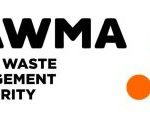
The Lagos State Ministry of Education on Wednesday warned owners of unregistered private schools operating in the state to immediately regularise their documents or face sanction.
Mr Adesegun Ogundeji, the Director, Public Affairs Unit of the ministry, gave the warning in an interview with the News Agency of Nigeria (NAN) in Lagos, on efforts being made by the state government to ensure safety in schools.
Ogundeji said that the ministry was stepping-up its monitoring team in schools across the state.
He said that operating illegally without due registration and compliance with the rules and guidelines for establishment of private schools is an offence.
Ogundeji said that school owners and proprietors operating illegally would be made to face the law.
He warned such schools to regularise their registration by visiting the ministry in Alausa or going to the nearest education district.
“Many private school owners and proprietors are hiding; they do not want to register their schools, and that is against the law.
“We have told them many times to come up and register their schools.
“In 2017, we made a lot of efforts on it; we told them to just go to their education district and write down the name of their school so that we can send monitoring teams to evaluate the environment.
“Quite a number of them came up, but many did not turn up; they prefer to operate in the state in hiding and illegally.
“We told them this is not about tax or levies; it is about doing the right thing and following due process. We just want to help you grow, we just want to help you obey rules and regulations in the state.
“There are rules and guidelines for establishing private schools and there are also sanctions and consequences.
“The ministry has stepped up its monitoring team in all schools in the state.
“Any private school operating from hiding will have itself to blame; such schools should come out to register and be approved,” he said.
According to him, there is a document titled ‘Guidelines for Public and Private Schools in Lagos State’ published by the State Ministry of Education, Revised Edition 2016’ , which is given to all school owners to guide their activities, stressing that it is free of charge.
“With this document, school owners will be guided on all they need to know before establishing a school, registration process, how to go about it and the steps to be taken.
“The process of registering a creche is different from nursery, primary and secondary school, so you can choose any one of your choice,” he said.
He pointed out that there are four steps for registering a school which include name search, site inspection, approval inspection and registration.
Explaining the process of registering a school, Ogundeji said the first step was name search, adding that school owner would submit three different proposed names so that there will be no clash of identity.
On site inspection, he said officials of the ministry would visit the school to know where the school wants to operate from, inspect the facilities on ground and make recommendations and correction where needed, before proceeding to the next stage.
“For instance, if a school proposes to operate within a residential building where there are other tenants or occupants, we will not allow it.
“It is not safe for the children because anybody can pretend to be visiting a tenant, thereby kidnapping a child or endangering the life of a pupil.
“We will inspect the place where you intend to place the fire extinguisher, playground and other facilities and advise you where necessary.
“We have to prevent all these things from happening, we don’t want anybody to endanger the life of any child.
“That is why school owners should register with us from the moment they conceive the idea of a school; you must be ready to comply with the laid down guidelines.
“After complying with all our recommendations and suggestions, we will now proceed to do approval inspection, to verify your compliance. It is at this stage that you can purchase a form for final registration and approval,“ he said.
The spokesman called for attitudinal change and voluntary compliance to rules and regulations among the people, to rid the system of unprofessional practices.











